Best looking 928 on eBay - Concourse Quality Paint -
- Make: Porsche
- Model: 928
- SubModel: S
- Type: --
- Trim: S
- Year: 1984
- Mileage: 88000
- VIN: WP0JB0928ES860551
- Color: Black
- Engine size: 4.7L V8
- Power options: --
- Fuel: Gasoline
- Transmission: Automatic
- Interior color: Tan
- Options: --
- Vehicle Title: Clear
- Location: Daytona Beach, Florida, United States
Description
“This clean carfax stunning looking car is one out of only 3,007 Porsche 928S models exported to the US in 1984First Porsche production V-8 model and only coupe powered by a front-mounted V-8 engine4.7L 16-valve, SOHC V-8 engine with Bosch L-Jetronic fuel injectionBosch EZF ignition with dual distributorsFour-speed automatic transmission with a 2.20 rear endAbsolutely stunning and immaculate black paint and body with tan and black interior.This pristine low mileage car is offered to us on consignment by a local collector with over 20 cars in his collection.This particular car has undergone an extensive and costly restoration turning it into an absolutely gorgeous car.The car's bodywork is in stunning condition with a concourse quality paint job, the interior has been restored to a very solid 7.5 out of 10. The engine has been meticulously maintained, no smoke, noises or leaks and runs extremely strong.” This car is a stunner, one of the best paint jobs you will find on any 928 of this era, after which it went through a 20+ hour cut and polish treatment giving it the deepest shine possible. Interior has been restored, car runs great, everything works as it should, this is a show stopper of a car. According to Hagerty, the foremost authority on classic cars, the following is a breakdown of 1984 Porsche 928S values. Current Values #1 Concours $51,500 #2 Excellent $35,000 #2 vehicles could win a local or regional show. They can be former #1 vehicles that have been driven or have aged. Seasoned observers will have to look closely for flaws, but will be able to find some not seen by the general public. The paint, chrome, glass and finishes will all appear as excellent. No excessive smoke will be seen on startup, no unusual noises will emanate from the engine. The vehicle will drive as a new vehicle of its era would. The one word description for #2 vehicles is "excellent." #3 Good $19,500 Our example can easily be classified as nearing Excellent. Under the hood is Porsche's 4.7L 16-valve SOHC V-8 with Bosch L-Jetronic fuel injection and Bosch EZF ignition with dual distributors and the motor is backed by a four-speed automatic transmission and a 2.20:1 rear end. Driver convenience features include automatic climate control, power steering, power four-wheel disc brakes and cruise control. Everything including the AC works. From 1980 (1983 in North America) through 1986, front and rear spoilers were present on "S" models, rear spoilers being integrated into the hatch. The right rear tail light is currently inoperable. The 928 featured a large, front-mounted and water-cooled V-8 engine driving the rear wheels Originally displacing 4.5 L and featuring a single overhead camshaft design, Porsche upgraded the engine from mechanical to electronic fuel injection in 1980 for US models, although power remained the same. This design marked a major change in direction for Porsche (started with the introduction of the Porsche 924 in 1976), whose cars had until then used only rear- or mid-mounted air-cooled flat engines with four or six cylinders. Porsche utilized a transaxle in the 928 to help achieve 50/50 front/rear weight distribution, aiding the car's balance. Although it weighed more than the difficult-to-handle 911, its more neutral weight balance and higher power output gave it similar performance on the track. The 928 was regarded as the more relaxing car to drive at the time. It came with either a five-speed dog leg manual transmission, or a Mercedes-Benz-derived automatic transmission, originally with three speeds, then with four-speed from 1983 in North America and 1984 in other markets. More than 80 percent had the automatic transmission. Exact percentage of manual gearbox cars for entire production run is believed to be between 15 and 20 percent. The body, styled by Wolfgang Möbius under guidance of Anatole Lapine, was mainly galvanized steel, but the doors, front fenders, and hood were aluminum in order to make the car more lightweight. It had a substantial luggage area accessed via a large hatchback. The new polyurethane elastic bumpers were integrated into the nose and tail and covered in body-colored plastic; an unusual feature for the time that aided the car visually and reduced its drag. Porsche opted not to offer a convertible variant but several aftermarket modifiers offered convertible conversions, most notably Carelli, based in Orange County, CA. The Carelli conversions were sold as complete cars, with the conversion doubling the price of the car. A reported 12 units were made. The 928 qualified as a 2+2, having two small seats in the rear. Both rear seats could be folded down to enlarge the luggage area, and both the front and rear seats had sun visors for occupants. The rear seats are small (due to the prominent transmission hump) and have very little leg room; they are only suitable for adults on very short trips or children. The 928 was also the first vehicle in which the instrument cluster moved along with the adjustable steering wheel in order to maintain maximum instrument visibility. The 928 included several other features such as the “Weissach Axle,” a simple rear-wheel steering system that provides passive rear-wheel steering to increase stability while braking during a turn, and an unsleeved, silicon alloy engine block made of aluminum, which reduced weight and provided a highly durable cylinder bore. Bosch ABS brakes were also optional in 1984, another first. Porsche's design and development efforts paid off during the 1978 European Car of the Year, where the 928 won ahead of the BMW 7 Series, and the Ford Granada. The 928 is the only car so far to have won this competition, where the usual winners are mainstream hatchbacks and sedans/saloons from major European manufacturers. This is regarded as proof of how advanced the 928 was, compared to its contemporaries.
 1984 Porsche 928S - Concourse Quality Paint
1984 Porsche 928S - Concourse Quality Paint
Mileage: 88000
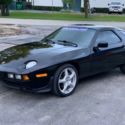 1984 Porsche 928 S -Concourse Quality Paint & body
1984 Porsche 928 S -Concourse Quality Paint & body
Mileage: 88000
 1984 Porsche 928 S -Concourse Quality Paint & body - Gorgeous
1984 Porsche 928 S -Concourse Quality Paint & body - Gorgeous
Mileage: 88000
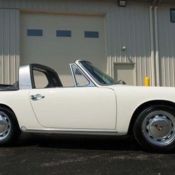 Rare 1968 912 Targa soft window - #'s Matching -Concourse Quality.
Rare 1968 912 Targa soft window - #'s Matching -Concourse Quality.
Mileage: 99,957
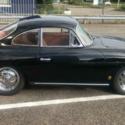 1962 Porsche 356 Speedster 616/12 1600S Fully Restored, concourse quality
1962 Porsche 356 Speedster 616/12 1600S Fully Restored, concourse quality
Mileage: 54000
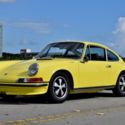 NUT and BOLT FULL restoration/Concourse Quality/original MATCHING NUMBERS
NUT and BOLT FULL restoration/Concourse Quality/original MATCHING NUMBERS
Mileage: 13373
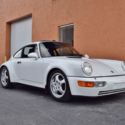 1 of 29 Grand Prix White-5 Speed- Concourse Quality- 32k Documented Miles- MINT
1 of 29 Grand Prix White-5 Speed- Concourse Quality- 32k Documented Miles- MINT
Mileage: 32,258
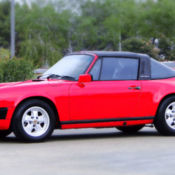 1988 911 Targa Carrera 100% Original paint Calif car One of the best on eBay
1988 911 Targa Carrera 100% Original paint Calif car One of the best on eBay
Mileage: 140,000
 100% Original Paint - Concours Quality -1 of only 288 made for the U.S market
100% Original Paint - Concours Quality -1 of only 288 made for the U.S market
Mileage: 41,003
 1989 Turbo, Original Paint. Invest quality. No NONSESE!
1989 Turbo, Original Paint. Invest quality. No NONSESE!
Mileage: 23,000











